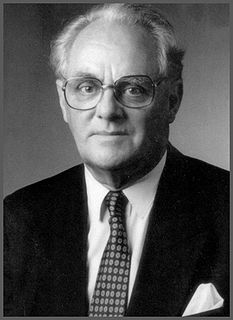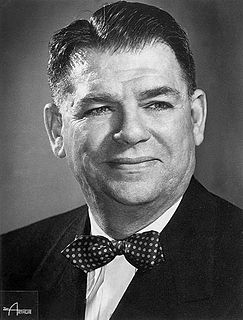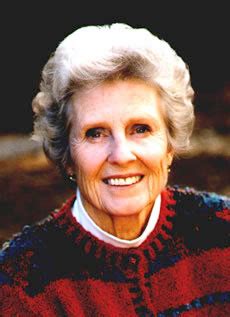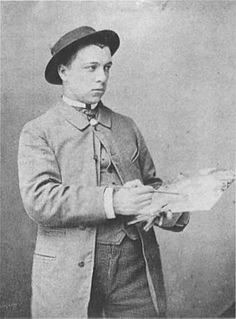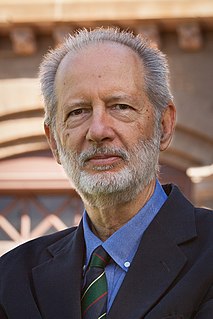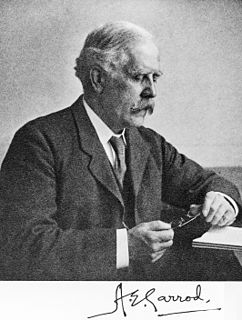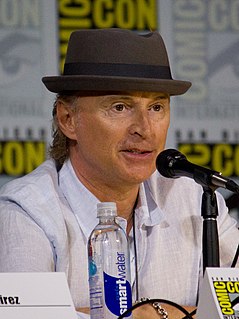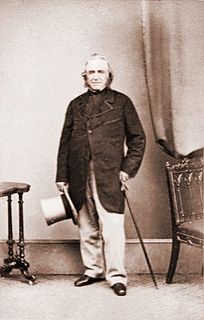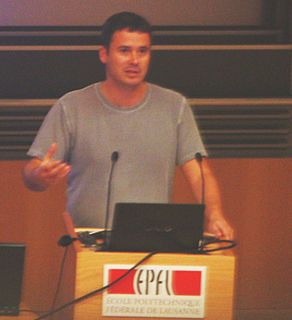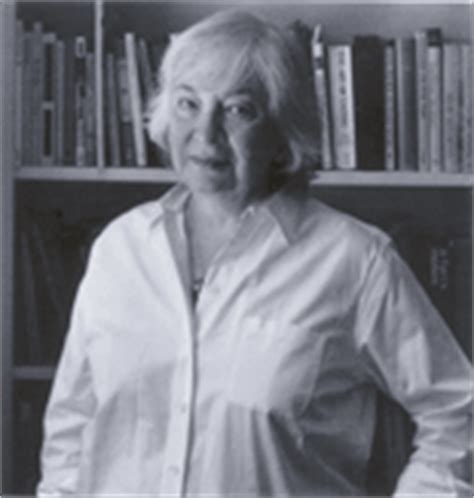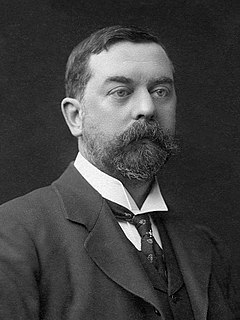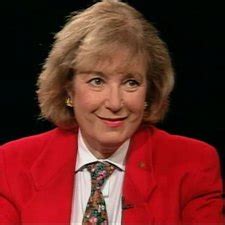Top 959 Observation Quotes & Sayings - Page 13
Explore popular Observation quotes.
Last updated on December 22, 2024.
The (Laetrile) efficacy tests...clinically in humans..(by) the US NCI...were obviously conducted so that a negative result could be formulated. The limited number and types of human cancer cases selected...the omission of necessary additional measures ('e.g dietary'), the far too short observation periods, and the undefined chemical properties of the (Laetrile)... all contributed to devaluation of...conclusions.
The observation that money changes induce output changes in the same direction receives confirmation in some data sets but is hard to see in others. Large-scale reductions in money growth can be associated with large-scale depressions or, if carried out in the form of a credible reform, with no depression at all.
As with many other folk beliefs, 'feng-shui' undoubtedly incorporates some scientifically correct observation or received wisdom based on direct experience of natural phenomena; but it needs to be dealt with skeptically as a credible system of thought. Some feng-shui prescriptions can certainly lead to desirable results.
If one sentence were to sum up the mechanism driving the Great Stagnation, it is this: Recent and current innovation is more geared to private goods than to public goods. That simple observation ties together the three major macroeconomic events of our time: growing income inequality, stagnant median income, and the financial crisis.
Many people may not recognize that the development of space exploration technologies has already helped benefit Earth in many ways, especially when it comes to communications, Earth observation and even fostering economic growth. Space technologies are surprisingly critical in impacting government, industry and personal daily decision-making.
My mother moved abroad when I was 11, my dad wasn't around from the time that I was a baby, so I was not the product of a family, but a product of observation - of watching what went on around me, of watching who I liked, what I didn't like, what I thought was good behavior and what I thought was bad behavior and tailoring myself accordingly.
Why you were born and why you are living depend entirely on what you are getting out of this world and what you are giving to it. I cannot prove that this is a balance of mathematical perfection, but my own observation of life leads me to the conclusion that there is a very real friendship, both quantitatively and qualitatively, between what you contribute and what you get out of life.
The life of the wood, meadow, and lake go on without us. Flowers bloom, set seed and die back; squirrels hide nuts in the fall and scold all year long; bobcats track the snowy lake in winter; deer browse the willow shoots in spring. Humans are but intruders who have presumed the right to be observers, and who, out of observation, find understanding.
You're always on duty because you're in a constant state of observation. That's one of the challenges of being a comedian. I think one of the other challenges is that, whether we like it or not, it's a profession that requires failure. It doesn't just encourage failure. It requires it because it's all trial and error. You need to know what doesn't work to know what works.
It was noted long ago that the front row of burlesque houses was occupied predominantly by bald-headed men. In fact, such a row became known as the bald-headed row. It might be assumed from this on statistical evidence that the continued close observation of chorus girls in tights caused loss of hair from the top of the head.
Let people who have to observe sickness and death look back and try to register in their observation the appearances which have preceded relapse, attack or death, and not assert that there were none, or that there were not the right ones. A want of the habit of observing conditions and an inveterate habit of taking averages are each of them often equally misleading.
Art is a creation of a higher order than a copy of nature which is governed by chance.... By the elimination of all muddy colors, by the exclusive use of optical mixture of pure colors, by a methodical divisionism and a strict observation of the scientific theory of colors, the neo-impressionists insures a maximum of luminosity, of color intensity, and of harmony- a result that has never yet been obtained.
It has been observed that a dwarf standing on the shoulders of a giant will see farther than the giant himself; and the moderns, standing as they do on the vantage ground of former discoveries and uniting all the fruits of the experience of their forefathers, with their own actual observation, may be admitted to enjoy a more enlarged and comprehensive view of things than the ancients themselves.
A man who aspires to rise above the mediocre, to be something more than the ordinary, surely deserves admiration, even if he fails and loses a fortune on account of his ambitions (...) if one has failed only where others have not had the courage or will to try, there is consolation - indeed, deep satisfaction - to be gained from his observation when looking back over one's life. #Page no.134
Men who have excessive faith in their theories or ideas are not only ill prepared for making discoveries; they also make very poor observations. Of necessity, they observe with a preconceived idea, and when they devise an experiment, they can see, in its results,only a confirmation of their theory. In this way they distort observation and often neglect very important facts because they do not further their aim.
Science is not, as so many seem to think, something apart, which has to do with telescopes, retorts, and test-tubes, and especially with nasty smells, but it is a way of searching out by observation, trial and classification; whether the phenomena investigated be the outcome of human activities, or of the more direct workings of nature's laws. Its methods admit of nothing untidy or slip-shod; its keynote is accuracy and its goal is truth.
Providing - that's not love. Being there - that's more important. I mean, we see that. We see that with all these rich socialites. They're crying out for attention; they're hurting for love. I'm not being judgmental - I'm just making an observation. They're crying out for the love that maybe they didn't get at home, and they got everything.
My mother moved abroad when I was 11, my dad wasn't around from the time that I was a baby, so I was not the product of a family, but a product of observation - of watching what went on around me, of watching who I liked, what I didn't like, what I thought was good behaviour and what I thought was bad behaviour and tailoring myself accordingly.
There are no accidents in Nature. Every motion of the constantly shifting bodies in the world is timed to the occasion for some definite, fore-ordered end. The flowers blossom in obedience to the same law that marks the course of constellations, and the song of a bird is the echo of a universal symphony. Nature is one, and to me the greatest delight of observation and study is to discover new unities in this all-embracing and eternal harmony.
The essential fault of surrealism is that it invents without discovering. To make a clam play an accordion is to invent not to discover. The observation of the unconscious, so far as it can be observed, should reveal things of which we have previously been unconscious, not the familiar things of which we have been conscious plus imagination.
All of us have been through relationships; there have been periods of time when we've been single. It's something that everyone experiences. It's a matter of making that observation and then start to ask questions about it: Why is it like that? And why do we feel that? And why are we organized this way? Isn't there any other way?
Just as an informal, nonscientific observation, most people's personalities don't seem to change very much during their lives. There are exceptions in the case of people who go through hugely traumatic events or suffer from brain injury or disease. Some would argue that religious conversions can have deep personality-altering effects. But these are all exceptions to the rule.
If we range through the whole territory of nature, and endeavour to extract from each department the rich stores of knowledge and pleasure they respectively contain, we shall not find a more refined or purer source of amusement, or a more interesting and unfailing subject for recreation, than that which the observation and examination of the structure, affinities, and habits of plants and vegetables, afford.
If we face our unpleasant feelings with care, affection, and nonviolence, we can transform them into a kind of energy that is healthy and has the capacity to nourish us. By the work of mindful observation, our unpleasant feelings can illuminate so much for us, offering us insight and understanding into ourselves and society.
The idea of getting old and dying, falling apart, does not sound fun at all to me, but it's an observation that I'm sure I'm not the first one to express. There're thousands of year of history attest to the same thing. Maybe it's the way I'm personally dealing with that inevitable transition. So I'm making metaphors out of the work possibly to think about that and try to get comfortable with the idea.
A man of the best parts and greatest learning, if he does not know the world by his own experience and observation, will be very absurd, and consequently very unwelcome in company. He may say very good things; but they will be probably so ill-timed, misplaced, or improperly addressed, that he had much better hold his tongue.
Reading, reflection and time have convinced me that the interests of society require the observation of those moral precepts only in which all religions agree (for all forbid us to steal, murder, plunder, or bear false witness), and that we should not intermeddle with the particular dogmas in which all religions differ, and which are totally unconnected with morality.
The philosopher forms his principles on an infinity of particular observations. He does not confuse truth with plausibility, he takes for truth what is true, for false what is false, for doubtful what is doubtful, and probable what is probable. The philosophical spirit is thus a spirit of observation and accuracy.
Sculpture and painting are very justly called liberal arts; a lively and strong imagination, together with a just observation, being absolutely necessary to excel in either; which, in my opinion, is by no means the case of music, though called a liberal art, and now in Italy placed even above the other two--a proof of the decline of that country.
I had never understood quite so clearly the effective power of Jane Jacob's writing - no, her clear-headed observation - as I did reading “What We See”. Maybe that's really the point of writing. That if you take the time to look, to really observe, then you see what is happening, and, with the clarity of that vision, you can act to save neighborhoods.
In the Gospels, for instance, we sometimes find the kingdom of heaven illustrated by principles drawn from observation of this world rather than from an ideal conception of justice; ... They remind us that the God we are seeking is present and active, that he is the living God; they are doubtless necessary if we are to keep religion from passing into a mere idealism and God into the vanishing point of our thought and endeavour.
All interpretation or observation of reality is necessarily fiction. In this case, the problem is that man is a moral animal abandoned in an amoral universe and condemned to a finite existence with no other purpose than to perpetuate the natural cycle of the species. It is impossible to survive in a prolonged state of reality, at least for a human being. We spend a good part of our lives dreaming, especially when we're awake.
'Impressionism' was the name given to a certain form of observation when Monet, not content with using his eyes to see what things were or what they looked like as everybody had done before him, turned his attention to noting what took place on his own retina (as an oculist would test his own vision).
I believe it is no wrong Observation, that Persons of Genius, and those who are most capable of Art, are always fond of Nature, as such are chiefly sensible, that all Art consists in the Imitation and Study of Nature. On the contrary, People of the common Level of Understanding are principally delighted with the Little Niceties and Fantastical Operations of Art, and constantly think that finest which is least Natural.
Discerning the merits of competing claims is where the empirical basis of science should play a role. I cannot stress often enough that what science is all about is not proving things to be true but proving them to be false. What fails the test of empirical reality, as determined by observation and experiment, gets thrown out like yesterday's newspaper.
About thirty years ago there was much talk that geologists ought only to observe and not theorise; and I well remember some one saying that at this rate a man might as well go into a gravel-pit and count the pebbles and describe the colours. How odd it is that anyone should not see that all observation must be for or against some view if it is to be of any service!
Scientific method, although in its more refined forms it may seem complicated, is in essence remarkably simply. It consists in observing such facts as will enable the observer to discover general laws governing facts of the kind in question. The two stages, first of observation, and second of inference to a law, are both essential, and each is susceptible of almost indefinite refinement. (1931)
Let us consider the polarity of love and hate.... Now, clinical observation shows not only that love is with unexpected regularityaccompanied by hate (ambivalence), and not only that in human relationships hate is frequently a forerunner of love, but also that in many circumstances hate changes into love and love into hate.
I have great hope and faith, but it's a humanistic faith based in facts; you have to believe that facts exist. We can all arrive at the same facts if we engage in the process of experimentation, observation, and verification, which can solve more of the world's major problems than a debate over whether God does or doesn't exist.
Persons without education certainly do not want either acuteness or strength of mind in what concerns themselves, or in things immediately within their observation; but they have no power of abstraction, no general standard of taste, or scale of opinion. They see their objects always near, and never in the horizon. Hence arises that egotism which has been remarked as the characteristic of self-taught men.
All mass movements strive, therefore, to interpose a fact-proof screen between the faithful and the realities of the world. They do this by claiming that the ultimate and absolute truth is already embodied in their doctrine and that there is no truth nor certitude outside it. The facts on which the true believer bases his conclusions must not be derived from his experience or observation but from holy writ.
Common sense is science exactly in so far as it fulfills the ideal of common sense; that is, sees facts as they are, or at any rate, without the distortion of prejudice, and reasons from them in accordance with the dictates of sound judgment. And science is simply common sense at its best, that is, rigidly accurate in observation, and merciless to fallacy in logic.
By means of personal experimentation and observation, we can discover certain simple and universal truths. The mind moves the body, and the body follows the mind. Logically then, negative thought patterns harm not only the mind but also the body. What we actually do builds up to affect the subconscious mind and in turn affects the conscious mind and all reactions.
The human experience can almost be summed up in the observation that, whereas all decisions are of the past, all decisions are about the future. The image of the future, therefore, is the key to all choice-oriented behavior. The character and quality of the images of the future which prevail in a society is therefore the most important clue to its overall dynamics.
[Modern science] passed through a long period of uncertainty and inconclusive experiment, but as the instrumental aids to research improved, and the results of observation accumulated, phantoms of the imagination were exorcised, idols of the cave were shattered, trustworthy materials were obtained for logical treatment, and hypotheses by long and careful trial were converted into theories.
Impressionism' was the name given to a certain form of observation when Monet, not content with using his eyes to see what things were or what they looked like as everybody had done before him, turned his attention to noting what took place on his own retina (as an oculist would test his own vision).
I believe in evidence. I believe in observation, measurement, and reasoning, confirmed by independent observers. I'll believe anything, no matter how wild and ridiculous, if there is evidence for it. The wilder and more ridiculous something is, however, the firmer and more solid the evidence will have to be.
Since we are assured that the all-wise Creator has observed the most exact proportions of number, weight and measure in the make of all things, the most likely way therefore to get any insight into the nature of those parts of the Creation which come within our observation must in all reason be to number, weigh and measure.
If we could suppose a great multitude of men to consent to the observation of justice, and other laws of Nature, without a common Power to keep them all in awe; we might as well suppose all mankind to do the same; and then there neither would be nor need to be any civil government or commonwealth at all, because there would be Peace without subjection.
We read Charlotte Bronte not for exquisite observation of character - her characters are vigorous and elementary; not for comedy - hers is grim and crude; not for a philosophic view of life - hers is that of a country parson's daughter; but for her poetry. Probably that is so with all writers who have, as she has, an overpowering personality, so that, as we say in real life, they have only to open the door to make themselves felt.
How scientists go about their job: and it's a process, it's a question of asking questions, respecting observation, respecting experiment, having tentative explanations and then testing them.... There is a problem sometimes with how we teach science at schools. Because we sometimes teach it as if it has been chiseled in stone.
A love of flowers would beget early rising, industry, habits of close observation, and of reading. It would incline the mind to notice natural phenomena, and to reason upon them. It would occupy the mind with pure thoughts, and inspire a sweet and gentle enthusiasm; maintain simplicity of taste; and ... unfold in the heart an enlarged, unstraightened, ardent piety.
